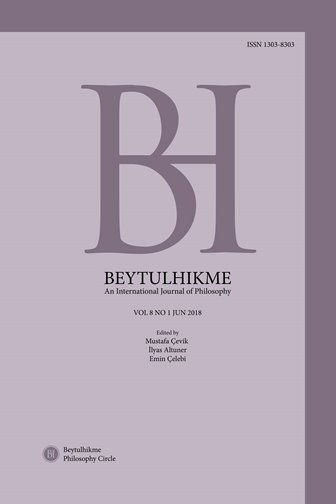Author :
Abstract
Bu makale, 19. yüzyılda analizin aritmetikleştirilmesi ve matematiğin temellendirilmesi tartışmaları bağlamında sayı kavramının tanımının ve mahiyetinin anlaşılması konusu üzerinedir. Mesele öncelikle tarihsel açıdan ele alınacak ve akabinde hem Dedekind, Cantor, Peano gibi matematikçilerin, hem de Frege gibi bir mantıkçının konu hakkındaki çözüm önerilerine yer verilecektir. 1870’lerde aritmetiğin temelleri üzerine yapılan tartışmalar, yoğunluk kazandı. Matematiğin tutarlı ve çelişkilerden arınmış, güvenilir bir bilim olması için öncelikle aritmetiğin temel taşı olan sayı kavramının tam olarak tanımlanması gerekiyordu. Bu makalede sayı kavramının ne olduğu, anlamının neliği sorusunun cevabı aranacaktır.
Keywords
Abstract
This article is about the understanding of the definition of the number concept and its content in the context of arithmeticisation of analysis and discussions on the basis of mathematics in the nineteenth century. The issue will be addressed historically first and then the proposals for solutions by mathematicians such as Dedekind, Cantor, Peano, as well as by Frege, a logician, will be examined. The discussions on the foundations of arithmetic in the 1870s gained intensity. For mathematics to be a consistent and reliable science free from contradictions, the concept of number, the cornerstone of arithmetic, had to be precisely defined. In this article, the answer to the question of what the concept of number is and what its meaning is will be discussed.
Keywords
- Boyer, C. B. (2015). Matematiğin Tarihi. Ankara: Doruk Yayınları.
- Burton, D. M. (2017).Matematik Tarihi. Ankara: Nobel Yayıncılık.
- Everdell, W. R. (2012). İlk Modernler. (Çev. H. Kocaoluk). İstanbul: Yapı Kredi Yayınları.
- Frege, G. (2014). Aritmetiğin Temelleri: Sayı Kavramı Üzerine Mantıksal Matematiksel Bir İnceleme. (Çev. B. Gözkan). İstanbul: Yapı Kredi Yayınları.
- Frege, G. (1979). Posthumous Writings. (Trans. P. Longand & R. White). Oxford: Basil Blackwell.
- Frege, G. (1969). Begriffsschrift: A Formula Language, Modeled upon that of Arithmetic for Pure Thought. From Frege to Gödel. (Ed. J. van Heijenoort). Massachusetts: Harvard University Press.
- Joyce, D. E. (2005) . Notes on Richard Dedekind’s Was sind und was sollen die Zahlen? Clark University, https://mathcs.clarku.edu/~djoyce/numbers/dedekind.pdf.
- Katz, V. J. (1993). A History of Mathematics. New York: Harper Collins.
- Stewart, I. (2017). Matematiğin Kısa Tarihi. (Çev. S. Sevinç). İstanbul: Alfa Yayınla- rı.
- Yıldırım, C. (2016). Matematiksel Düşünme. İstanbul: Remzi Kitabevi. Öz: Bu makale, 19. yüzyılda analizin aritmetikleştirilmesi ve matematiğin temellendirilmesi tartışmaları bağlamında sayı kavramının tanımının ve mahiyetinin anlaşılması konusu üzerinedir. Mesele öncelikle tarihsel açıdan ele alınacak ve akabinde hem Dedekind, Cantor, Peano gibi matematikçilerin, hem de Frege gibi bir mantıkçının konu hakkındaki çözüm önerilerine yer verilecektir. 1870’lerde aritmetiğin temelleri üzerine yapılan tartışmalar, yoğunluk kazandı. Matematiğin tutarlı ve çelişkilerden arınmış, güvenilir bir bilim olması için öncelikle aritmetiğin temel taşı olan sayı kavramının tam olarak tanımlanması gerekiyordu. Bu makalede sayı kavramının ne olduğu, anlamının neliği sorusunun cevabı aranacaktır. Anahtar Kelimeler: Sayı kavramı, aritmetiğin temelleri, matematik felsefesi, Dedekind, Frege.





